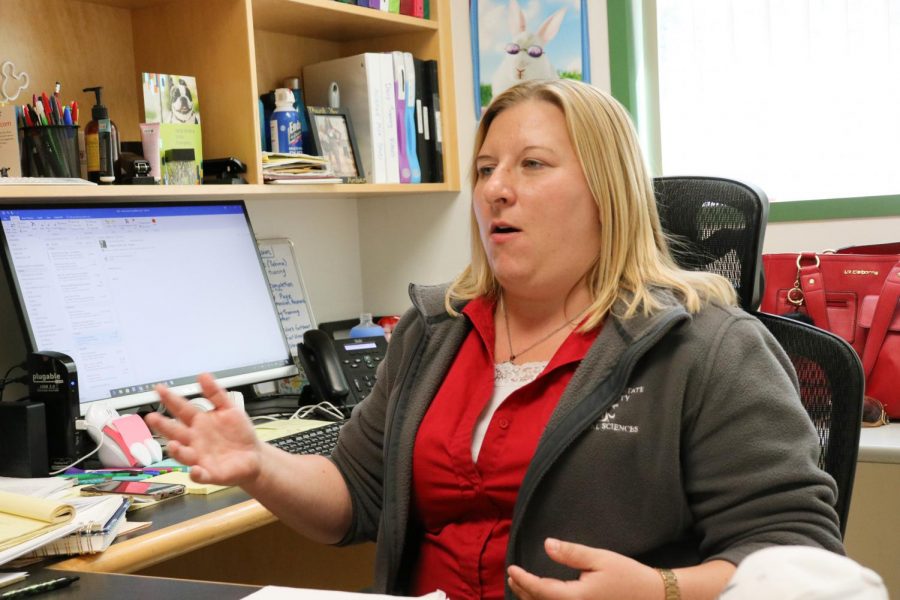Research works to keep dairy farm workers safe
Training will teach employees about hazards, prevention
JACK LEWIS-CLARKE | THE DAILY EVERGREEN
Dairy Management Specialist Amber Adams-Progar speaks about the future of the dairy industry Thursday afternoon at the Animal Science Building. She says their research could help protect farmers and animals.
April 25, 2019
Research at WSU will help create a safety training network to reduce injury risk among dairy farm workers and animals.
Dairy Management Specialist Amber Adams-Progar said the network started after researchers looked at labor and industry data related to worker’s compensation claims among dairy workers. She said they found a lot of injury claims caused by slips, trips and falls, as well as cattle-related injuries.
Celina Matuk Sarinana, Knott Dairy Center manager, said working on a dairy farm can have a lot of different risks of injury. She said slippery surfaces can cause falls onto hard concrete.
Dairy machinery can also cause injury, as well as improper handling and positioning around large cattle, she said.
“A bump from a cow could be similar to a bump from a car,” Matuk Sarinana said.
Adams-Progar said a lack of education for dairy workers on how to properly manage occupational risks made a collaborative safety training network necessary.
She said what might seem like common knowledge in terms of dairy farm safety might actually be unknown to new and inexperienced dairy workers. This training will help teach employees to be aware of their surroundings and to have an exit strategy when things go wrong.
“It is the responsibility of the workers to manage risk,” Matuk Sarinana said.
Adams-Progar said the network will work with dairies to educate on workplace safety, not just through instructional videos, but through interactive seminars as well. The collaborative process will rely on feedback from laborers and employers as they work to identify common areas of risk and the most effective ways of training.
“This will make safety more of a discussion,” Adams-Progar said.
Matuk Sarinana said specialized training for each position at the dairy farm will also be a key part of the programming.
“We try to be ahead of the accidents,” Matuk Sarinana said. “Prevention is the name of the game.”
Adams-Progar said another component of the network will be the academic research to help identify better methods of animal and worker safety.
“Research is backing what we are trying to teach and train people to do,” Adams-Progar said.
The network already works with organizations like the Dairy Farmers of Washington and the Washington State Dairy Federation to promote their programming, Adams-Progar said.
“It is nice to have the dairy industry buy-in,” Adams-Progar said. “It will help us get connected to dairies.”
Adams-Progar said this kind of training is in the best interests of the dairy industry as a whole.
“Farmers don’t want employees to get hurt, and employees don’t want to get hurt either,” Adams-Progar said.









